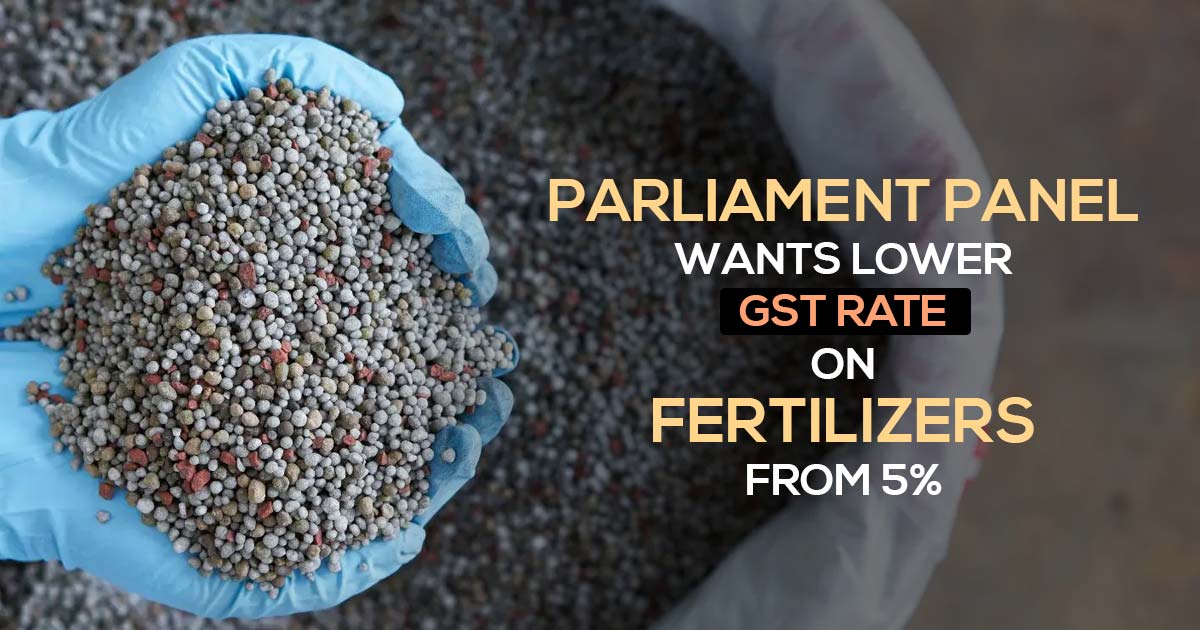
On Wednesday, a committee of the Parliament suggested to the government that a proposal should be made to the GST Council to cut the tax rates on fertilizers from 5% at present.
The Standing Committee on Chemicals and Fertilisers said the committee has been notified that 12% GST is applicable on fertilizers. However, seeing the rising demand from various states, GST was reduced to 5% on fertilizers.
The idea to further lower GST on fertilizers was brought before the GST Council in its 45th and 47th meetings which happened in September 2021 and June 2022, respectively. However, there were no recommendations made by the GST Council regarding modifications in GST rates on fertilizers or any other organic farm inputs.
The panel added that it is firmly recommended that the matter to further reduce the GST on fertilizers may be brought before the GST Council sooner rather than later to favour the farmers of our country.
The committee observed that 5% GST is applicable on fertilizers but its raw materials, such as sulphuric acid and ammonia, are under a higher GST rate at 18% on the recommendations of the GST Council.
The Committee couldn’t understand this deviation. The department has made it clear that raw materials of fertilizers like Sulphur can be used in various ways and it is also used in the production of various other products such as detergents, paints, dyes etc. Similarly, ammonia too has many uses and is also used as refrigerator gas, plastic manufacturing, explosives, textiles, etc., as per the reports.
However, the committee believed that the raw materials used for producing fertilizers should be brought under a lower Goods and Services Tax (GST). They requested the Department of Fertilizers to consider the idea of reducing the GST on raw materials, as it would benefit fertilizer manufacturers and ultimately benefit farmers.
Moreover, the panel recommended that the Department of Fertilizers take appropriate steps to address the shortage of various types of fertilizers in the country, particularly urea, and work towards making it self-reliant in fertilizer production.
The committee requested the government to review the current subsidy policy (Nutrient-Based Subsidy (NBS) policy) for phosphatic and potash (P&K) fertilizers to eliminate the disincentives for farmers to use fertilizers other than urea.
Read also: GST Impact on Agriculture Sector in India
According to the panel’s report, the NBS policy promotes excessive use of urea and ignores other fertilizers like P&K.
It addressed that urea remains under price control, unlike other fertilizers where there is no such control. Consequently, the prices of these deregulated fertilizers have increased, leading farmers to use urea more. This has further created an imbalance in fertilizer usage.









